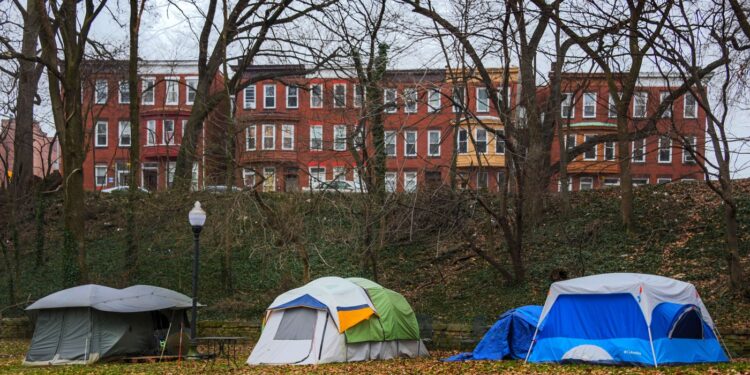
Hundreds of youth and young adults in Baltimore face the harsh reality of homelessness, and a significant number of them identify as LGBTQ+. This crisis is not just a housing issue — it’s a matter of equity, safety and human dignity. While recent efforts such as Department of Housing and Urban Development grants supporting transitional housing are steps in the right direction, much more must be done to address the root causes of this systemic problem.
LGBTQ+ youth are 120% more likely to experience homelessness than their heterosexual peers. Family rejection due to sexual orientation and gender identity is the leading cause of homelessness among these young people. Many are forced to leave their homes, facing a harsh reality of discrimination, exploitation and limited resources.
For Black and minority LGBTQ+ youth, the intersection of race, sexual identity and socioeconomic status compounds their vulnerabilities. Baltimore, like many cities, lacks the infrastructure to support these marginalized young people. The city has only one youth-specific shelter, The Nest, to address the needs of thousands of homeless youths. Even fewer services are designed explicitly for LGBTQ+ youth, leaving many to “couch surf” or take refuge in unsafe and abandoned spaces. These precarious living conditions expose them to heightened risks of sexual exploitation, human trafficking, substance abuse and mental health crises.
In 2021, Mayor Brandon Scott’s administration secured HUD funding to launch transitional housing projects for LGBTQ+ youth in partnership with organizations like Baltimore Safe Haven. These programs provide more than just shelter — they offer essential services such as mental health care, financial literacy training, and pathways to education and employment. Yet, the demand far outpaces the supply, and bureaucratic hurdles for accessing these programs can exclude the very youth they aim to help.
The systemic barriers extend beyond shelter. LGBTQ+ youth often face discrimination within traditional support systems, from schools to foster care. Federal definitions of homelessness exacerbate the issue, excluding youth who “couch surf” from accessing critical HUD resources. In Maryland, foster care support ends at 21, leaving many aging out without a safety net. These gaps create a pipeline from unstable housing to chronic homelessness.
Addressing youth homelessness requires a multi-pronged approach:
Expand housing options: Baltimore must prioritize building more youth-specific and LGBTQ+ inclusive shelters. Emergency housing programs should reduce barriers to entry and focus on providing immediate and safe accommodations.
Increase funding: State and federal governments must allocate sustainable funding for transitional housing and support services. Programs like the Ending Youth Homelessness Act of 2018 are a start. Still, they must be expanded to include long-term funding guarantees and resources targeting marginalized groups.
Redefine homelessness: Federal definitions of homelessness should be expanded to recognize youth living in unstable or temporary situations, such as couch surfing. This change would offer more services to these youth.
Education and advocacy: Addressing societal stigmas around LGBTQ+ lifestyles is critical to fostering understanding. Schools, churches, and community groups must provide more inclusive environments and offer support in educating families about the LGBTQ+ lifestyle, support, and acceptance (The Trevor Project, 2022).
Comprehensive support services: Wraparound programs should provide mental health counseling, life skills training, and pathways to education and employment. Partnerships with local nonprofits and businesses can bolster these efforts.
Beyond anyone’s sexual orientation or gender identity, the young people of Baltimore have value and so much to offer the community. While organizations like Baltimore Safe Haven showcase the impact of strong community partnerships, they cannot address this challenge alone.
We must come together and act now! Everyone is responsible for ensuring these young people’s safety and well-being. Every child deserves stability and support, and with the proper community backing and opportunities, these young people can achieve so much more.
Jasmyne B. Ford is a student at Coppin State University majoring in social work.







